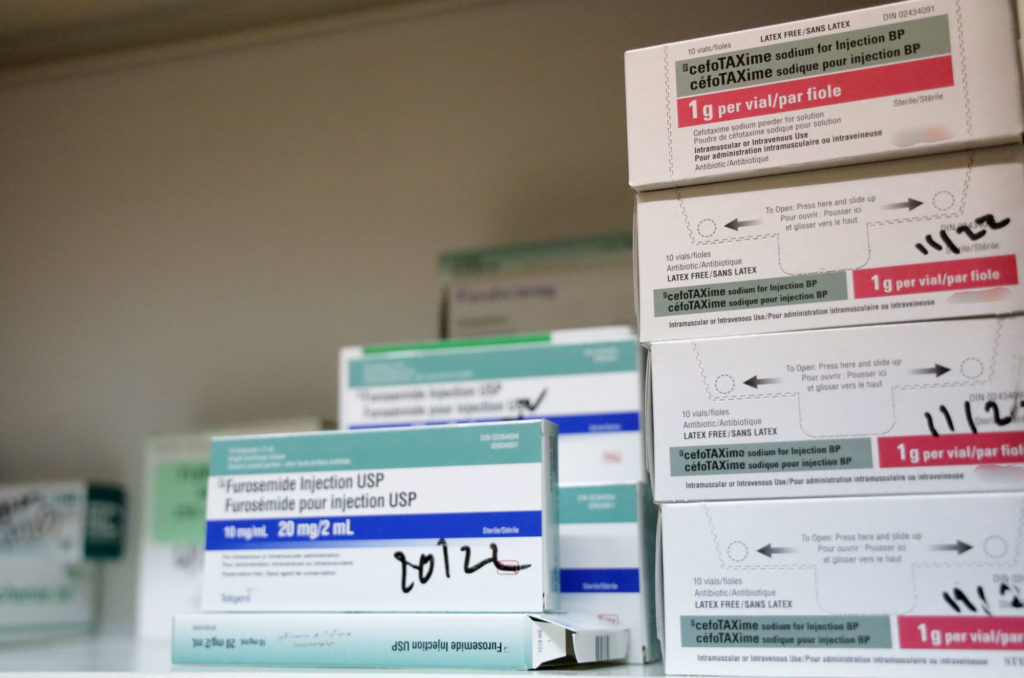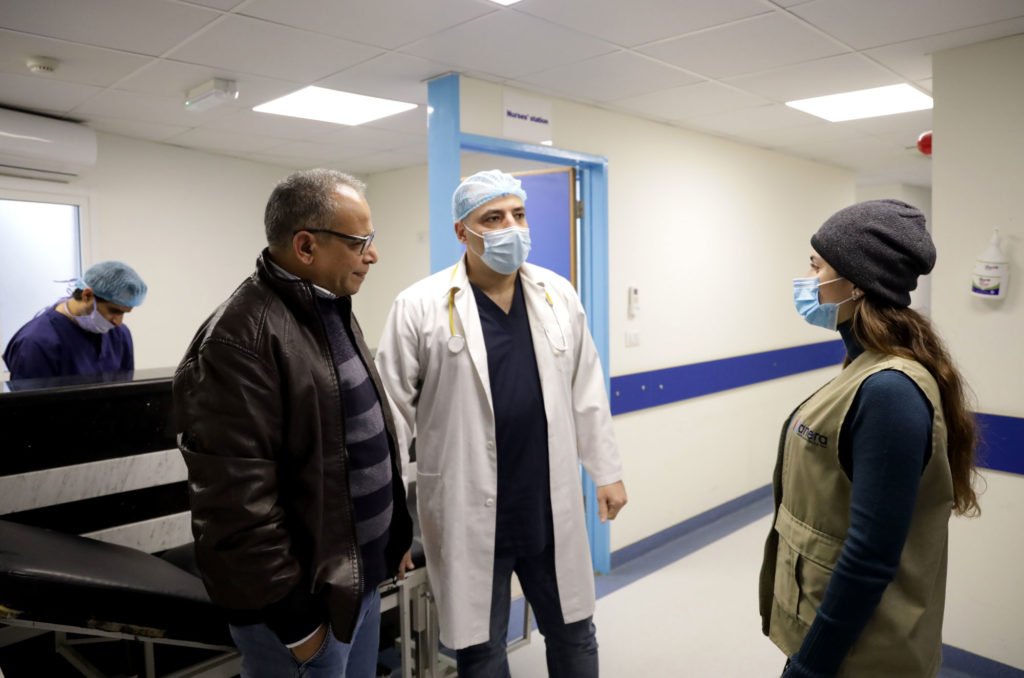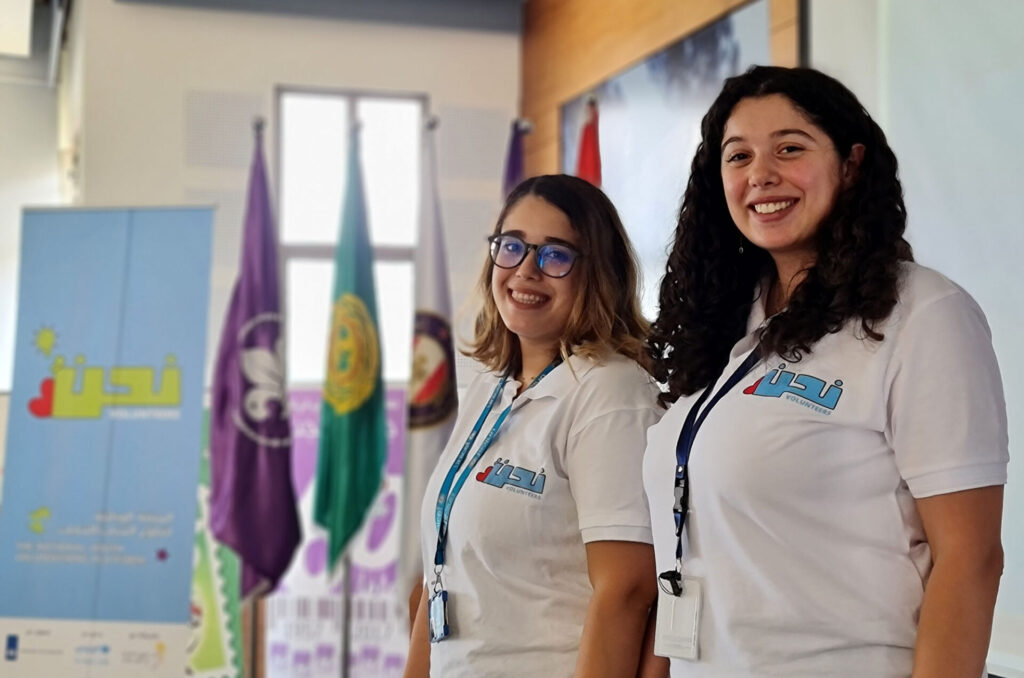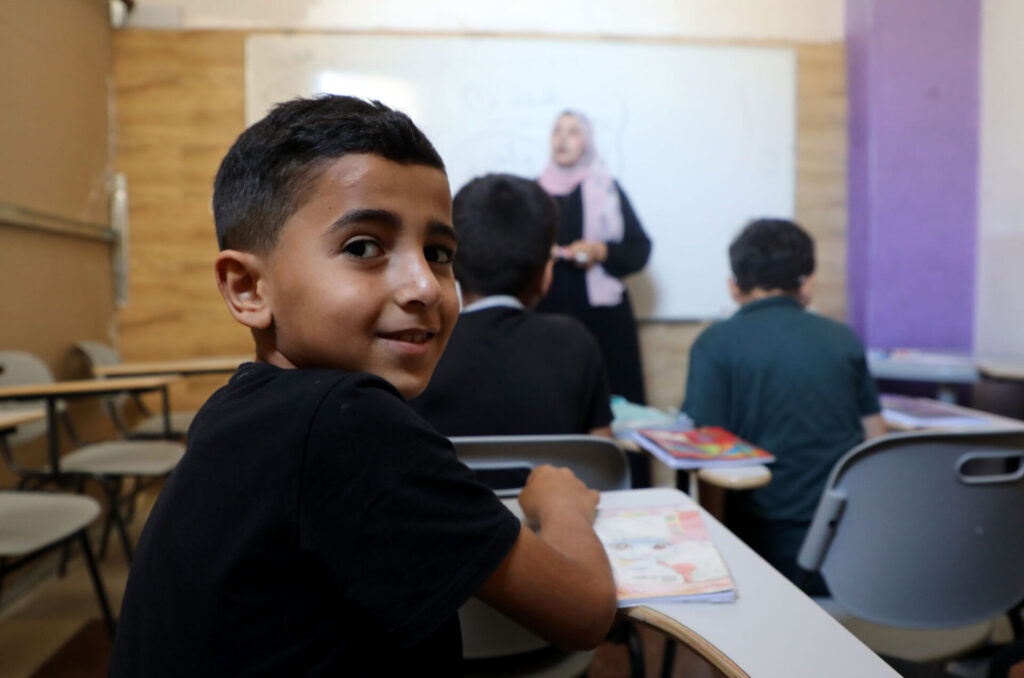Mar, 2022
In a time of crisis, a recent medical aid donation from International Health Partners UK is helping Haifa Hospital in Burj El Barajneh Palestinian Refugee Camp continue to serve its patients.
Residents in Lebanon of all nationalities — Lebanese, Syrian, Palestinian, and others — are suffering tremendously from the financial currency crisis. Lebanon was not long ago a leading country for medical care. Now, the medical system has collapsed with the economy, leaving residents struggling to obtain basic treatments and medicines.
Over 80% of medications are imported to Lebanon. So the collapse of the Lebanese pound, which has lost over 90% of its value since late 2019, has had devastating consequences for the healthcare system.
Until recently, medicines like insulin were subsidized to support vulnerable populations. But with the treasury drained, subsidies were lifted last year in the midst of Lebanon’s financial collapse. With prices mounting and real wages falling, most patients have been left unable to purchase basic medicines. The dire circumstances prompted Amnesty International to declare that the lifting of subsidies directly “violates the right to health and life.”
Working with their close partners and donors, Anera has coordinated a donation of antibiotics — as well as a diuretic medicine used to treat fluid retention in people with congestive heart failure, liver disease and kidney disorders — from International Health Partners, a UK-based NGO working towards supporting global public health.
Anera has recently distributed the medication to the Palestine Red Crescent Society's Haifa Hospital, in Burj El Barajneh, a Palestinian refugee camp. These joint efforts of Anera and IHP come as a response to the lifting of subsidies and the resulting desperation among residents of Lebanon.


Haifa Hospital serves patients of all age groups and genders, refugees as well as nearby Lebanese residents — and some not so nearby.
"Our patients come from all walks of life, from across the country," says Ibrahim Al-Ahmad, the lead pharmacist at Haifa Hospital. “Many of our (non-Palestinian) patients from outside the refugee camp have been using our services because our fees are low."




“Many of our (non-Palestinian) patients from outside the refugee camp have been using our services because our fees are low."
The list of medicines that are no longer subsidized is long, including drugs to treat chronic illnesses. Insulin and antibiotics, even when found in pharmacies and medical dispensaries, are now only available to those with a decent income.
Many fear that these developments will lead to major health complications and even death for many people who depend on medications for their treatment.
IHP’s donation directly addresses the need for antibiotics in the country. The shipment included injectable antibiotics such as cefotaxime, to treat severe infections, as well as furosemide (a diuretic), to treat edema, which is a result of fluid being trapped in the body which causes swelling. Edema is itself a result of heart or renal failure.
“Each month brings shortages of another medicine or item. Having a partner like Anera means that we can voice our exact needs, and have been able to receive medications like antibiotics that had been in short supply,” Al-Ahmad says.


